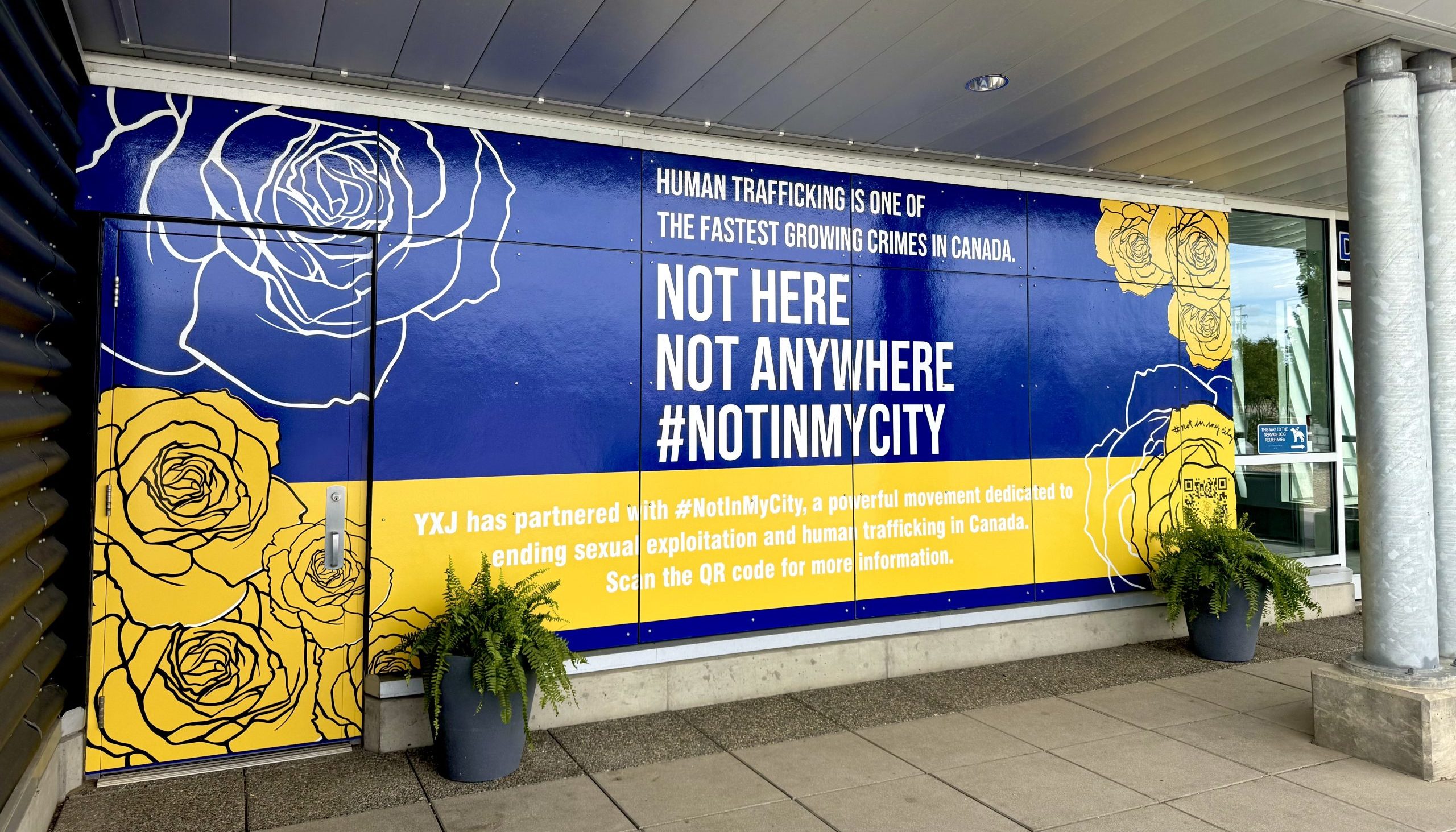Airports are vital community hubs, connecting people and places, but they can also be exploited by human traffickers. Through a powerful partnership with #NotInMyCity (#NIMC), Canadian airports are taking bold steps to combat this crime, fostering hope and safety for those at risk. By raising awareness, training staff, and creating safe spaces, airports are becoming key allies in the fight to end human trafficking.

A Room with a Purpose
In late 2024, Calgary International Airport (YYC) set a precedent by opening Canada’s first airport “safe room” or “soft room” in collaboration with #NIMC. Designed with care, these rooms offer a calm, supportive environment with soft lighting, comfortable seating, clean clothes, and snacks for individuals escaping trafficking situations. They provide a secure space where law enforcement and community services can offer critical support.
Building on this success, Edmonton International Airport (YEG) launched its own safe room on World Day Against Trafficking in Persons, July 30, 2025. Just two weeks later, the Alberta Law Enforcement Response Team (ALERT) used the YEG safe room to assist a trafficking survivor. The survivor, supported in this thoughtfully designed space, felt safe and comforted, growing more at ease with authorities over time. This powerful outcome underscores the transformative role of safe rooms in offering dignity and security to those in need.

Ongoing Awareness Efforts
Even in airports where safe rooms are not feasible, there are several other ways for airports to become allies and partners. There are now more than 40 airports who have partnered with #NIMC in various capacities:
- Awareness Campaigns: Airports are executing awareness campaigns that include #NIMC informational decals and signs to educate both staff and travelers about the signs of human trafficking.
- Employee Training Programs: Airport personnel, including security, airline staff, and customer service representatives receive specialized training to identify and respond to potential human trafficking situations with compassion and efficiency.
- Identification of Safe Spaces: Airports are identifying and designating safe spaces or safe rooms within their facilities where individuals who may be at risk can go for help and support.
- Community Collaboration: Airports work with #NIMC and local organizations to align efforts, amplifying their impact in supporting survivors and disrupting trafficking networks.

This comprehensive approach highlights the proactive role of Canadian airports in disrupting human trafficking and their dedication in creating safer communities. With every #NotInMyCity decal placed on a wall, e-learning course completed, or safe room opened, the message grows stronger: human trafficking will not go unaddressed in our airports.


